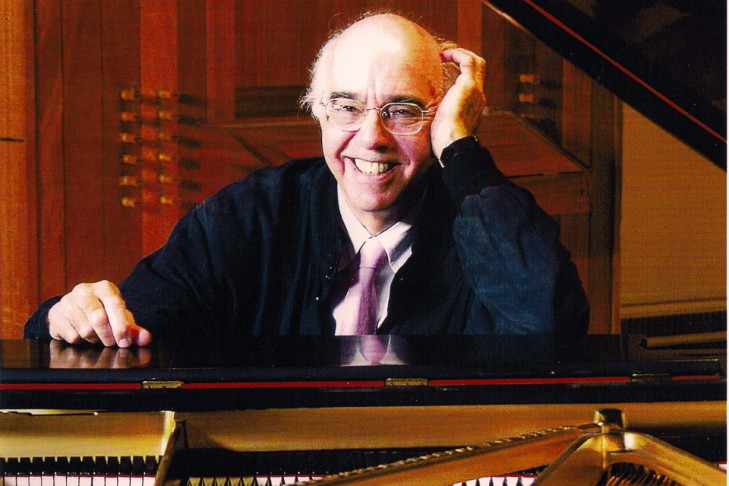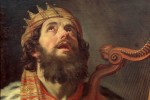Composer Yehudi Wyner recently spoke to JewishBoston about his composer father’s influence on him and his Jewish choral music.
I read that you’re “a rare breed of composer” who is fiercely independent, that you don’t align yourself with a particular style. Can you tell us about your range of expression?
What was your father’s influence on your work? His influence permeated me in many ways. My father showed me how to notate music but never gave me lessons in composition. My mother was in charge of my early musical education in piano. My father was a traditional, distant authoritarian figure, but he was a wonderful musician. He was writing music all the time. There was a parade of musicians who came through our house to work and study with him. He loved simple, direct expression in music, like what you find in Verdi rather than in Wagner. He was also a leading figure in the Yiddish cultural movement. He knew the poets, the writers. My father was interested in authentic Jewish materials, which meant going back to the basic sources of Jewish music. He was not interested in pop songs or Second Avenue Yiddish Theater. His music was based on cantillation, Hasidic practices and various modes of prayer. He had a nose for what was real Jewish folk music versus what was just commercial. He had nothing but contempt for the commercial stuff. When it came time for me to write Jewish music, I did similar things. I imagined what Jewish life was like during a certain time period, what elements were older and less infiltrated by commercial elements. How did your “The Torah Service” and “Friday Evening Service” pieces come about? “The Torah Service” and “Friday Evening Service” were commissioned pieces. “Friday Evening Service” is much more traditional in style and technique. It draws on the familiar elements in the Reform synagogue service and goes back to using trope or cantillation elements. It also has a certain amount of congregational involvement. I wrote the piece in 1963 and it was first performed at Park Avenue Synagogue in New York City. Three years later, someone wanted to have music written for his son’s bar mitzvah in New Haven. I was teaching at Yale at the time. The piece I wrote was “The Torah Service,” and it was first performed late in the spring in 1966 by Yale students from the music school. That piece is very different from “Friday Evening Service.” “The Torah Service” is much more dissonant, violent and sometimes quite aggressive. I think, above all, it comes from me trying to imagine what it was like for the Jews of 2,500 years ago living in some small arid portion of the Mideast. They had no understanding of weather, disease, aging or their enemies. What was the nature of the religion and the defense against terrible onslaughts, which were inscrutable? When we can’t understand something, we yell to somehow chase away the evil spirits. We make a big noise and we’re aggressive about it. Those dynamics haven’t changed so much. I was thinking along those lines and really delving into the nature of the texts of the Torah service, which inspired me to adopt a particular kind of language and approach to the piece. “The Torah Service” begins with that kind of aggressive and desperate expressive music. It’s noisy and the brass instruments sound quite primitive. You were initially reluctant to encourage these concert performances during worship because it results in a kind of passivity. How does “Friday Evening Service” overcome that reluctance? I encourage audience participation in “Friday Evening Service.” When I premiered the piece, an older man who spoke a heavily accented English came over to me and said, “I’m from Odessa and your service made me feel as if I were back at home.” I think the piece succeeded in bringing people back to their home synagogues that were in places like Odessa. There are a number of sections in “Friday Evening Service” that can be sung by the congregation. “The Torah Service” is a very different imaginative effort. It consists of individual numbers for the sections of the Torah services, and between them you have the Torah readings. In order to read the Torah, you have to have aliyot, which means people come up to the bimah to read the current portion of the week. That’s part of the service as well. The piece doesn’t stand as a self-contained work of art that can be performed like a symphony or string quartet; it depends on being done as a service. We’re trying to simulate something of what goes on in the synagogue in the concert hall. Cantata Singers presents “Honegger, Wyner and Weiner” on Friday, May 12, at 8 p.m. at NEC’s Jordan Hall. Tickets are $25-$69 and can be purchased online at cantatasingers.org or by calling 617-868-5885.
This post has been contributed by a third party. The opinions, facts and any media content are presented solely by the author, and JewishBoston assumes no responsibility for them. Want to add your voice to the conversation? Publish your own post here.
MORE
Related




